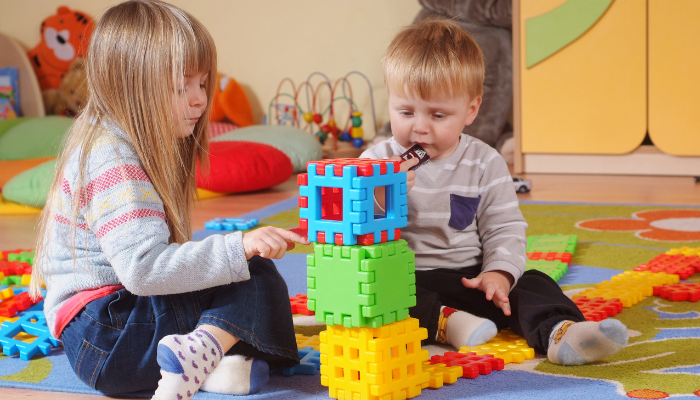When your child starts nursery, managing sickness can feel like an unavoidable reality. With so many little ones in close contact, it’s common for germs to spread quickly, often leading to frequent colds, coughs, and even more serious illnesses. Handling sickness at nursery can be challenging, both practically and emotionally, for parents. Here’s a guide to help you navigate these rough patches, equipped with tips to reduce the impact of nursery sickness on your family and help keep your child healthy.
Understanding Sickness at Nursery
For many parents, the excitement of a child starting nursery is tempered by the reality that sickness at nursery is almost inevitable. From frequent runny noses to more concerning fevers, the common cycle of illnesses can take an emotional toll on families. Knowing what to expect, how to manage it, and how to care for both your child and yourself can make a significant difference in how you cope with sickness at nursery.
Sickness at Nursery Is Common
Sickness at nursery is largely due to the close contact between children who are still developing immunity to common illnesses. Young children tend to touch their faces, put objects in their mouths, and don’t yet have well-established hygiene practices, which leads to a higher likelihood of germs spreading, making illness nearly impossible to avoid entirely.
Common Illnesses in Nursery Settings
Nurseries are hotspots for various types of illnesses, including:
- Common Cold and Flu: Viral infections that cause coughing, sneezing, runny nose, and sometimes fever. These are perhaps the most frequent examples.
- Stomach Bugs: Often caused by rotavirus or norovirus, leading to symptoms like vomiting and diarrhea.
- Conjunctivitis (Pink Eye): This contagious eye infection spreads through contact with infected surfaces and is another common form of sickness at nursery.
- Hand, Foot, and Mouth Disease: Caused by the coxsackievirus, leading to blisters and sores around the hands, feet, and mouth.
Understanding these common illnesses helps you prepare for the types of symptoms your child may experience and allows you to react promptly if they show signs of sicknesses.

When to Keep Your Child Home from Nursery
One of the biggest decisions parents face is determining when to keep their child home due to sickness at nursery. Generally, it’s wise to keep them home if they have:
- A fever over 100.4°F (38°C)
- Vomiting or diarrhea
- Persistent coughing or breathing difficulties
- Unexplained rash
- Contagious eye infections or other visibly contagious symptoms
Being cautious with contagious symptoms helps protect not only your child but also other children and staff at the nursery, reducing the cycle of sickness at nursery.
Signs of Illness to Watch Out For
Some signs of sickness at nursery can be subtle at first, so knowing the early symptoms can help you intervene quickly:
- Loss of Appetite: A sudden lack of interest in food may indicate an underlying illness, often the first sign of sickness.
- Increased Fatigue: If your child seems overly tired or drowsy, it may be a sign they’re fighting something off.
- Unusual Behavior: Crankiness, clinginess, or irritability can sometimes be early indicators.
Preventing Sickness at Nursery: Practical Tips
While it is hard to avoid entirely, there are steps you can take to reduce the risk:
- Hand Hygiene: Teach your child to wash their hands regularly, especially after using the toilet, before eating, and after touching communal toys.
- Balanced Diet: Providing a nutrient-rich diet can boost their immune system and make them more resilient to sickness at nursery.
- Adequate Sleep: Good sleep helps your child’s body fight off infections more effectively, reducing the frequency of sickness at nursery.
Although these measures can’t guarantee your child won’t catch something, they do help lower the overall risk.
Teaching Your Child Good Hygiene Practices
Instilling hygiene habits in your child at a young age can make a big difference in preventing sickness at nursery. Simple practices like washing hands, using tissues to blow their nose, and not sharing cups or utensils with other children go a long way in reducing the chances of sickness at nursery.
You can make hygiene fun by using songs or games to reinforce these habits, helping your child to see them as part of their routine.
The Role of Vaccinations in Reducing Sickness
Vaccinations play an essential role in protecting children from serious illnesses that can spread in nursery settings, such as the flu, chickenpox, and measles. Ensuring your child is up-to-date on their immunizations can reduce the likelihood of catching and spreading preventable illnesses, which ultimately helps reduce sickness at nursery.
Communicating with Nursery Staff about Illness
Maintaining open communication with nursery staff is vital when it comes to sickness at nursery. Keep them informed about any recent illnesses your child has had, and stay updated on any illnesses circulating within the nursery. Knowing when and how to communicate helps nursery staff manage the risk of outbreaks and better protect all the children in their care, keeping sickness at nursery to a minimum.
Balancing Work and Child Sickness
Juggling work and a sick child can be incredibly challenging for working parents. Talk to your employer about the possibility of flexible working arrangements or remote work options on days when your child needs to stay home due to sickness at nursery. Additionally, establishing a support network with friends, family, or neighbors can provide backup childcare during unexpected sick days.
Handling the Emotional Side of Sickness at Nursery
Dealing with frequent sickness at nursery can be emotionally draining for parents. It’s normal to feel frustration, guilt, or even helplessness. Remember, you’re not alone—many parents face this struggle. Taking time for self-care, reaching out to other parents, and talking to trusted friends or family members can help you manage the emotional toll of frequent sickness at nursery.
Building Immunity: Long-Term Health Benefits
Though it may seem daunting, early exposure to common germs can actually help children build stronger immune systems. According to pediatric health experts, children who attend nursery may experience fewer illnesses as they grow older because their immune systems become more resilient after repeated exposure to sickness at nursery.
What to Do When Sickness Persists
If your child seems to be sick frequently due to sickness at nursery, consulting with a pediatrician can help identify any underlying health issues or nutritional deficiencies. Persistent illness might indicate allergies, asthma, or other immune system concerns that require medical attention.
Returning to Nursery after Illness
After an illness, it’s important to ensure your child is fully recovered before sending them back to nursery. The rule of thumb is to wait at least 24 hours after a fever, vomiting, or diarrhea has subsided without medication before returning. A fully recovered child is less likely to experience a relapse and helps reduce the risk of spreading sickness at nursery to others.
Self-Care for Parents during Nursery Sickness
Managing sickness at nursery doesn’t just impact children—it can affect the entire family. Taking care of yourself allows you to be there for your child without burning out. Prioritize sleep, eat well, and lean on your support network when you need a break, especially during periods when sickness at nursery is frequent.

Conclusion: Supporting Your Family Through Nursery Sickness
Facing sickness at nursery can feel like a daunting challenge, but with the right strategies, you can navigate this period with more confidence and peace of mind. By focusing on prevention, establishing communication with nursery staff, and practicing self-care, you create a supportive environment for both you and your child. Remember, while the nursery sickness phase is tough, it’s temporary, and with each illness, your child’s immune system is growing stronger.
FAQs: Handling Illness at Nursery
Q1: How can I reduce my child’s risk of getting sick at nursery?
Encourage handwashing, ensure they get enough sleep, and keep their vaccinations up-to-date to reduce the chance of getting sick at nursery.
Q2: When should I keep my child home from nursery?
If they have a fever, diarrhea, vomiting, or any other contagious symptoms, it’s best to prevent spreading sickness among children at nursery.
Q3: How long should I keep my child home after they’re sick?
Wait at least 24 hours after symptoms like fever or vomiting have subsided.
Q4: Can children build immunity by attending nursery?
Yes, regular exposure to common germs at nursery can help strengthen their immune system over time.
Q5: What should I do if my child keeps getting sick at nursery?
Consult with your pediatrician to rule out any underlying health concerns.
Q6: How can I support my child emotionally during frequent sickness?
Provide comfort, establish routines, and reassure them that getting better takes time.
Read Our Latest Article: Practical & Tasty Healthy Lunchbox Ideas for Nursery Kids
Follow us

Pingback: The Power of Vitamin D: How It Impacts Your Child’s Development - Purple Bees Child Care